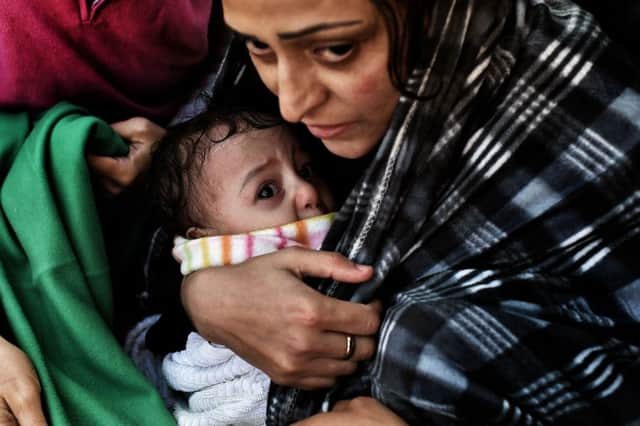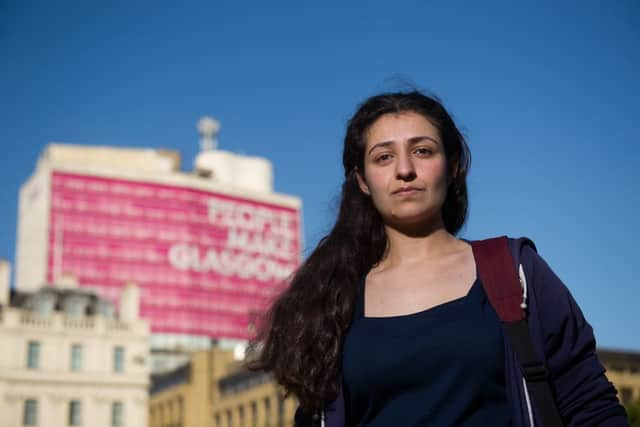Seeing refugee crisis at first hand is ‘terrifying’


Once beloved by holidaymakers for its beautiful beaches and unspoiled landscape, Lesbos is now on the frontline of the refugee crisis as thousands land there each day.
Scots human rights activist Aksu, 22, spent six days on a humanitarian visit to the island. Asked how she viewed her trip, the human rights graduate replied: “Terrifying.”
Advertisement
Hide AdAdvertisement
Hide AdYesterday she shared her experience with delegates attending the Changing Our Unequal World conference in Edinburgh, which is part of a fortnight of events throughout the capital under the banner of the Edinburgh World Justice Festival and which features speakers from Colombia, Palestine, Israel, Turkey, the US and India.


Aksu, who herself arrived as an asylum-seeker to the UK from Turkey, aged eight, told of how she witnessed a daily procession of wet and bedraggled refugees stumble up Lesbos’s beaches from dinghies and boats.
Some wore uninflated lifejackets sold to them by traffickers, while children wore a collection of armbands and life rings. Authorities on the island have recorded 73,179 arrivals in September; 186,720 for the year so far – equivalent to almost three times the number of residents.
Aksu said: “I thought I was prepared for what I was going to see but it is something else to witness for yourself. There are thousands of people sleeping in parks and on the streets with no help whatsoever except for that provided by locals. There is no international refugee effort at all.
“These people land and there is no water, no food, no shelter for them.
“Further along the coast in Mytilini the UN High Commission for Human Rights [UNHCR] have two rescue centres, one of which is broken, set up to house just 750 people.
“You go down to the beach and there is just a continual procession of boats and people. I remember one woman carrying a six-month old child couldn’t actually walk from the boat, she was so exhausted and dehydrated.
“I took the child from her but the baby was soaked through. It wouldn’t move or open its eyes. I was terrified. Thankfully the baby eventually opened its eyes. This was just one case. We helped many families along the beach.”
Advertisement
Hide AdAdvertisement
Hide AdTwo refugees – a 34-year-old woman and a two-year-old boy – lost their lives when the boat carrying them from Turkey capsized on Wednesday morning off the coast of Lesbos.
Coastguards rescued 47 refugees in the incident.
Aksu said: “We have to do more. There has to be a more concerted effort from governments and aid agencies. I went to Lesbos to witness first-hand international refugee regimes in practice but I was left sadly disappointed.”
David Cameron has said the UK will take 20,000 refugees – 4,000 a year over the next five years. They will be accepted from those living in camps in countries neighbouring Syria.
Meanwhile the UK has opted out of an EU plan to relocate 120,000 migrants who have already travelled to Europe.
Earlier this week Scottish international development minister, Humza Yousaf met UK refugees minister Richard Harrington and revealed that Westminster is considering “front loading” its intake of refugees to address the immediate crisis.
Yousaf said: “I did discuss it with the minister and he is actively considering it.
“I don’t think I will be breaching any confidences at all to say that they understand this won’t be a 4,000 per year or 5,000 per year job at all.”
Edinburgh World Justice festival chairman Matthew Crighton said: “Edinburgh has connections across the globe and an incredibly active network of campaign groups. The festival is a way to come together, share ideas, and get more people involved in issues from refugee rights to climate change.”